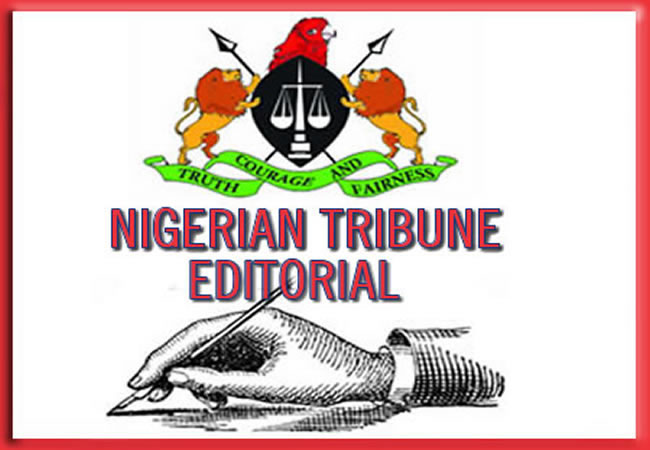LAST week, the acting Inspector-General of Police (IGP), Kayode Egbetokun, disclosed that he was not expecting returns from any police officer, charging the men and officers of the force to be diligent in the discharge of their constitutional responsibilities. The Assistant Inspector-General of Police, Zone 11, Paul Ojeka Odama, who conveyed this message to the officers during a working visit to the Oyo State Police Command, advised them to shun any act capable of tarnishing the image of the Force. He said: “Policing is a noble profession. Officers must guide against any act capable of tarnishing the good image of the force. There is a new Sheriff in town. He is the IGP. He has always reiterated his commitment to zero tolerance for corruption. He leads by example. His records are there as Commissioner of Police, Kwara State, and in other places where he served in various capacities. You are not being sent to the field to bring any returns but to discharge your duties as enshrined in the 1999 Constitution as amended. Disciplined officers will not indulge in the collection of bribes from motorists. It is even ridiculous that commercial drivers are collecting money from the passengers to bribe the police. This ignoble act must stop. You must carry out your assignment with the fear of God and apply the law in the course of discharging your duties.”
To be sure, Nigerians have deep-seated resentment for the gross misconduct prevalent in key institutions of government, including the police. Nigeria has had 13 IGPs since 1999. But many of them left office, not necessarily because they had attained the maximum age of retirement or the statutory number of years for service but due to the unsavoury affairs in the force. Some were forced into retirement due to sleaze. Cases of extortion, theft, disregard for the rule of law and fundamental rights of the citizens arrested based on spurious allegations abound in the force. Yes, the police claim to be friends of the citizenry, but they constantly harass and dehumanise citizens. Thus, Nigerians can be forgiven for seeing the directive given by the IGP as just another rhetoric from the corridors of power. It will take some time for the police leadership to restore the respect, trust and confidence of the majority of the populace in the police. Indeed, just how far the IGP’s warning will go among the leadership of the force remains to be seen.
Like most of his predecessors, IGP Egbetokun has unequivocally acknowledged the unsavoury tendencies deeply entrenched in the system over the years, some of which culminated in the #EndSARS protest. That is commendable. But Nigerians know that graft-influenced postings and career progression, impunity and malfeasance, are still in the force, and cannot accept the rhetoric by the police leadership. As is the case with the other law enforcement agencies in the country, the bad eggs within the system have cast a slur on its image and integrity. There is therefore a need for a holistic moral rearmament. If anything, the IGP saying his men should not bring returns to him confirms that there is a culture of giving returns. Such a culture needs to die. This should not be about the IGP alone: commanders, DPOs, etc, should give a similar charge to their subordinates. The IGP must devise a way of monitoring the effectiveness of his directive. It is common knowledge that policemen on the road deliver returns to their bosses while those occupying sensitive positions also receive returns. Indeed, policemen are reported to make daily savings like traders in the market, while officers are said to lobby for certain lucrative positions.
The problem with the IGP’s charge is that no high-ranking government official has ever openly advertised interest in taking and accepting returns from corrupt practices even as corruption envelopes the country. Rather, the usual spectacle is that of anti-graft preachments. Those in high offices in Nigeria often start out with such sanctimonious postures, without this eventually having any positive effects. Nigerians would appreciate, for once, having government officials acting in ways that will show that they are truly against corruption. Life workings are done in line with leadership traits and examples; it would be difficult to keep complaining about corruption in the country and in specific government organs and institutions if the leadership did not condone corruption.
An employee who is certain that the leadership under which he/she serves will actively expose and punish corrupt acts will be extremely careful not to get involved in them. It is when Nigerians can expose any police personnel demanding bribes on the road or seeking to extort money from them, knowing that instant punishment awaits them, that they will accept that the leadership of the Nigeria Police is truly opposed to corruption and corrupt tendencies.
IGP Egbetokun knows what to do to stop corruption in the police, including ensuring that erring personnel are exposed and dealt with swiftly. While we acknowledge the punitive measures being taken in some commands against officers and men of the force found to have impugned its name, we are not persuaded that a comprehensively functional system for dealing with indiscipline in the force has been attained yet. There would not be so much indiscipline if most proven cases attracted severe sanction. IGP Egbetokun must walk the talk.
READ ALSO FROM NIGERIAN TRIBUNE
WATCH TOP VIDEOS FROM NIGERIAN TRIBUNE TV
- Relationship Hangout: Public vs Private Proposals – Which Truly Wins in Love?
- “No” Is a Complete Sentence: Why You Should Stop Feeling Guilty
- Relationship Hangout: Friendship Talk 2025 – How to Be a Good Friend & Big Questions on Friendship
- Police Overpower Armed Robbers in Ibadan After Fierce Struggle






